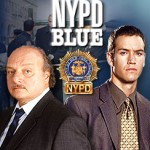 Listening to the pundits try to make sense of Wall Street is a bit like riding one of those old wooden roller coasters. You begin by starting off slowly. Then you climb a big hill and just as quickly, head screaming back down. In between, you get shook around a lot and end up were you started (if you’re lucky).
Listening to the pundits try to make sense of Wall Street is a bit like riding one of those old wooden roller coasters. You begin by starting off slowly. Then you climb a big hill and just as quickly, head screaming back down. In between, you get shook around a lot and end up were you started (if you’re lucky).
Take some recent analysis from the 4th estate…
The price of gas goes down at the pump. Drivers now spend less money to fill up their tanks. That’s a good thing, right? Wrong! Analysts report consumer spending is down because Americans are losing faith in the recovery. What happens? Stocks tumble on the news of the report. Huh?
Speaking of gasoline, the former president of Shell Oil predicted in December 2011 that gas would cost $5 a gallon in 2012. Gas prices did go up, but have returned to January 2012. Maybe that’s why he is the former president for Shell.
Several large banks get their ratings lowered because of questionable deals with European countries. That’s bad right? Wrong! Stocks go up because investors were already expecting this and like the fact it was done. What happens? Stock prices rise on the news. Say what?
The Supreme Court surprises many people by upholding “Obama Care”. This was not based on commerce, but that the government can tax just about anything it wants. The money experts on Fox and CNBC immediately screamed this would ruin the economy and kill jobs. The market did go down after the ruling was released, but only dropped around 40 points. Wonder what Obama did when the market dropped over 100 points before the announcement was made?
There is a television ad currently airing for a financial services company. Various husbands are getting ready for bed and fretting to their wives about what could happen if the economy goes south (I’m guessing the company doesn’t feel women are smart enough to be worried). The wives offer sound advice saying “it’s all noise” and we should “tune it out”.
 I remember a very smart (and wealthy) financial adviser telling me to look at the market as a long term process, and not to focus on a day/week or month. I try to follow that advice, but I have to admit it’s hard to do when all the talking heads sound like the scarecrow from the Wizard of Oz giving me directions to find the end of the Yellow Brick Road.
I remember a very smart (and wealthy) financial adviser telling me to look at the market as a long term process, and not to focus on a day/week or month. I try to follow that advice, but I have to admit it’s hard to do when all the talking heads sound like the scarecrow from the Wizard of Oz giving me directions to find the end of the Yellow Brick Road.






